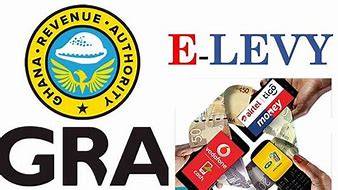Breaking News: Ghana’s Parliament Repeals E-Levy – What This Means for You!
Introduction: A Major Shift in Ghana’s Financial Landscape
In a groundbreaking move, Ghana’s Parliament has officially repealed the controversial Electronic Transactions Levy (E-Levy), marking a significant shift in the country’s financial policies. The decision, which now awaits Presidential assent, has sparked discussions among citizens, businesses, and financial experts.
This move is expected to bring relief to Ghanaians who have long criticized the E-Levy for increasing the cost of digital transactions. But what does this repeal mean for individuals, businesses, and Ghana’s economy as a whole? Let’s break it down.
Understanding the E-Levy and Why It Was Repealed
What Was the E-Levy?
The Electronic Transactions Levy (E-Levy) was introduced in 2022 as a tax imposed on mobile money transactions, bank transfers, and other electronic payments above a certain threshold. The government introduced it to boost revenue generation, arguing that digital transactions were an untapped source of income.
Initially set at 1.75%, the rate was later reduced to 1% due to public backlash. Despite the reduction, many Ghanaians still found the levy burdensome, leading to decreased mobile money transactions.
Why Did Parliament Repeal the E-Levy?
There are several reasons behind this landmark decision:
1. Public Outcry and Resistance – Many Ghanaians, especially small business owners and low-income earners, opposed the levy, arguing it was a double taxation that discouraged digital payments.
2. Decline in Mobile Money Transactions – The implementation of the E-Levy led to a significant drop in mobile money usage, as people sought alternatives to avoid extra charges.
3. Failure to Meet Revenue Expectations – The government initially projected that the E-Levy would generate over GH¢6.9 billion annually, but the actual revenue collected fell far short of expectations.
4. Encouraging Digital Financial Growth – With Ghana aiming to become a cashless economy, the repeal is seen as a move to encourage digital transactions and improve financial inclusion.
5. Political and Economic Considerations – With elections approaching, the government may be using the repeal as a strategic move to win public trust and favor.
What Happens Next? Presidential Assent and Implementation
While Parliament has approved the repeal, the bill still requires Presidential assent before it becomes law. The President’s signature will officially remove the tax from Ghana’s financial system.
If signed into law, Ghanaians can expect:
Zero E-Levy charges on mobile money and electronic transactions.
A boost in digital payments, as more people will be encouraged to use mobile money without extra charges.
Relief for businesses, especially small and medium enterprises (SMEs), that rely on mobile transactions.
Impact of the E-Levy Repeal on Ghanaians
1. Positive Effects on Mobile Money Users
Ghanaians who depend on mobile money services will no longer pay extra fees for transactions, making financial transactions cheaper and more convenient. This could lead to a revival of mobile money usage across the country.
2. Boost to Digital Financial Services
With the removal of the E-Levy, banks and fintech companies may witness a rise in digital transactions. This could lead to increased investment in mobile banking, e-commerce, and digital payment solutions.
3. Impact on Government Revenue
While the government initially expected the E-Levy to boost revenue collection, its repeal could mean a loss of income. However, experts believe that the rise in digital transactions may compensate for the lost revenue in the long run.
4. Economic Growth and Business Expansion
The repeal is a positive step for businesses, particularly small enterprises that struggled with the additional costs. With lower transaction fees, businesses may experience higher sales and increased economic activity.
Public Reaction: Mixed Responses from Citizens and Experts
The repeal has drawn mixed reactions from different sections of society:
Supporters of the Repeal Say:
✅ It will encourage digital payments and financial inclusion.
✅ It removes a burden on ordinary Ghanaians and small businesses.
✅ It will boost the mobile money industry and support economic growth.
Critics of the Repeal Argue:
⌠The government may struggle to replace the lost revenue.
⌠There could be higher taxes elsewhere to make up for the deficit.
⌠It could affect Ghana’s economic stability if alternative revenue sources are not found.
What’s Next for Ghana’s Tax System?
With the E-Levy gone, the government may need to explore alternative tax measures to sustain revenue collection. Possible options include:
Expanding the tax base – Bringing more businesses into the formal tax system.
Increasing VAT and other taxes – Although this may be unpopular, it could be a strategy to recover lost revenue.
Encouraging corporate tax compliance – Ensuring large businesses pay their fair share.
Final Thoughts: A New Era for Digital Transactions in Ghana
The repeal of the E-Levy marks a turning point in Ghana’s economic and digital finance sector. If the President grants assent, it could boost digital transactions, support businesses, and improve financial inclusion.
However, the government must find new revenue sources to maintain financial stability. Ghanaians will be watching closely to see what tax policies replace the E-Levy in the future.
For now, this decision is a victory for mobile money users and businesses that rely on digital payments. If you’re a Ghanaian who regularly uses mobile money, this is great news for your wallet!
Stay tuned for further updates as we await Presidential approval of the bill.
What do you think about the repeal of the E-Levy? Do you support it or think it will harm Ghana’s economy? Share your thoughts in the comments below!


